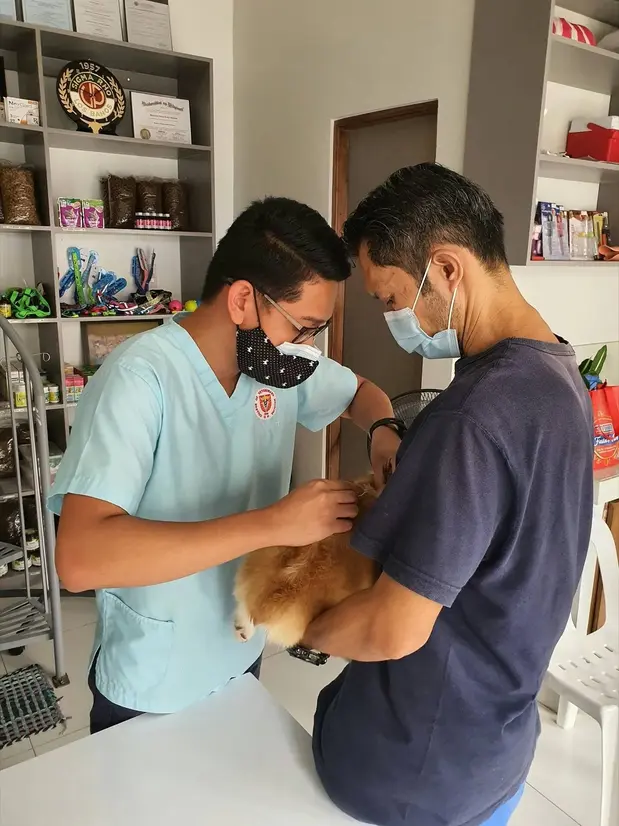


Ultimate Medical Academy
For nearly 30 years, UMA has helped students build rewarding healthcare careers. With personalized support from day one to graduation, you’ll stay on track to reach your goals.



South University



Post University (Online)

As you take the first step towards fulfilling your dream of working with animals, we understand that the decision to study Veterinary Science in higher education can be both exciting and formidable. This complex field of study not just prepares you for a lifetime of compassion and care towards animals but also equips you with invaluable knowledge in the areas of medical, physical, and biological sciences. With several institutions offering diverse programs and specializations, we aim to guide you in identifying the right choices that align with your educational needs and career aspirations. Our goal is to provide you with accurate, reliable information that empowers you to navigate your educational journey with confidence, while supporting your passion for making a difference in the well-being and lives of animals.
Choosing to study a program in Veterinary Science means stepping into a rewarding career that provides you the opportunity to make a positive impact on the lives of animals and the people who love them. This program doesn't just involve studying diseases and treatments among a range of animals but also covers public health, research, teaching, and more. Therefore, your instructional goals will aim to develop a robust knowledge base, strengthen your practical skills, inculcate ethical practices, and foster ongoing learning.


As a student embarking on a program in Veterinary Science, you're preparing to dive deep into the fascinating world of animal health care. This broad field of study will equip you with the expertise on how to diagnose and treat various illnesses in animals, train you on safe handling of different types of animals, and educate you on the latest advancements in veterinary medicine. Your journey towards becoming a skilled veterinary professional will be both rigorous and rewarding, providing you with a profound understanding of animal biology and equipping you with crucial skills needed to make a significant contribution to animal welfare in your future career.
Remember that your commitment to learning and passion for animals can make a huge difference in their lives and contribute to the broader society. Keep going for you are on a remarkable and noble academic and career path!
If you're interested in starting a higher education program in Veterinary Science, you'll need to acquire specific experience beforehand. This preparation ensures you are well-suited for the detailed and demanding coursework that such programs offer. First, you should spend some time volunteering or working in an environment that involves routine interaction with animals. Secondly, understanding basic science principles is crucial for studying Veterinary Science at a higher level.
Remember, each program may have additional requirements or preferences. So, it's essential to research specific programs to understand their exact requirements. This research will help you become a competent professional in the field of Veterinary Science, equipping you with the skills and knowledge necessary to excel.

Upon graduating with a degree in Veterinary Science, an exciting array of career opportunities opens up for you. Going beyond the common conception of working as a local vet, careers in this field can take you in many directions you may not have initially considered. This could include caring for the health of both domestic and exotic animals, working in research and development for animal health products, or even using your knowledge to contribute to wildlife conservation efforts. There's a broad range of careers encompassing direct care, research, consultancy, policy development, and management, among others. These roles could see you working in a local clinic, a zoo, a pharmaceutical company, government institutions, non-profit organizations, or even international conservation bodies.
According to the U.S. Bureau of Labor Statistics (BLS), the median annual wage for veterinarians was $125,510 in May 2024.
Your specific income as a veterinarian can vary significantly based on factors such as specialization, experience, geographical location, and the type of veterinary work. Specializations like surgery or internal medicine often lead to higher salaries. As you gain experience, your earning potential can increase. While the financial rewards are substantial, a career in veterinary science is also highly fulfilling, offering personal satisfaction from helping animals and their owners.
Once you've earned your postgraduate degree in Veterinary Science, multiple rewarding career paths open up. You can become a veterinarian, working in animal clinics or hospitals, catering to the health needs of a variety of animals. You may also choose to specialize in areas such as surgical veterinary practice or exotic animal care. Research opportunities are also vast in pharmaceutical companies, government agencies, and universities where you can play a pivotal role in developing new treatments for animal diseases. If teaching enthralls you, consider becoming a faculty member at a veterinary college. Additionally, opportunities are available in animal nutrition, wildlife conservation, and animal welfare organizations. Whatever path you choose, remember it's not just about the paycheck, it's about fulfilling your passion and making an impact in the field of animal health care.